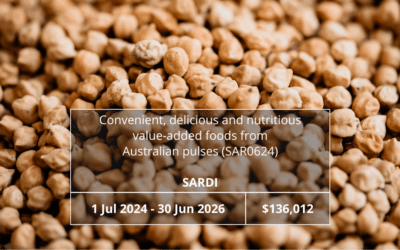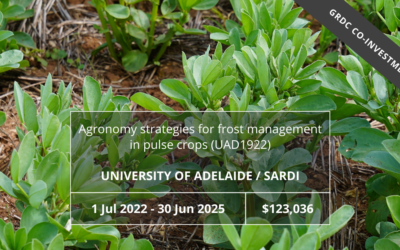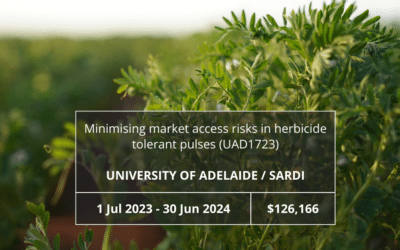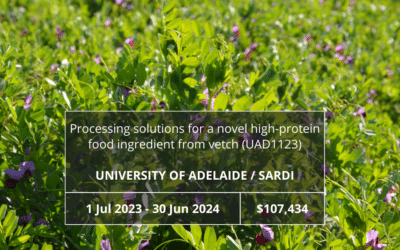South Australian researchers will investigate crop topping at reduced rates of paraquat following the announcement of proposed restrictions on the widely used chemical by the Australian Pesticides and Veterinary Medicines Authority (APVMA).
Posts Tagged - pulses
Convenient, delicious and nutritious value-added foods from Australian pulses (SAR0624)
Jul 11, 2024 | Current Projects
This project aims to use a range of local pulses to make a range of attractive, delicious, nutritious and convenient pre-cooked food products that have wide appeal. This will include determining the appropriate processing steps for each grain type that would work in a commercial food manufacturing set-up to achieve acceptable grain texture and provide long shelf-life in can and/or pouch formats. The proof-of-concept products will be packaged in a variety of formats and tested with consumers, food manufacturers and food retailers.
Agronomy strategies for frost management in pulse crops (UAD1922)
Nov 23, 2023 | Current Projects
This project will be undertaken by SARDI researchers. Novel management strategies that either provide crop protection or avoidance during the critical reproductive stages, such as including mixed species cropping (intercropping) and delayed sowing, will be investigated to successfully grow pulse crops in frost prone environments.
Minimising market access risks in herbicide tolerant pulses (UAD1723)
Nov 23, 2023 | Current Projects
This project will be undertaken by SARDI researchers and aims to exploit natural genetic variation in herbicide metabolism ability to reduce the market access risks associated with chemical residues in herbicide tolerant pulse grain. This project will identify variation in the ability of lentil and faba bean genotypes to metabolise metribuzin and investigate whether herbicide residues are retained or reduced in plant-based protein extraction processes.
Processing solutions for a novel high-protein food ingredient from vetch (UAD1123)
Nov 23, 2023 | Current Projects
Researchers have recently found a way to detoxify vetch via a steeping method. This project will be undertaken by SARDI researchers and aims to develop a low-cost, robust method for physical removal of the β-cyanoalanine toxin from common vetch, and capacity in quantitative analysis of toxin levels, towards including vetch as an alternative feedstock for plant protein production in SA.
Latest Media
- SAGIT funds research into paraquat ahead of proposed restrictions
- 2024 Student Compendium
- Strategies for mitigating frost damage in the Upper North region (UNF1724)
- An improved and rapid test to inform sodic soil management (UAD4624)
- Increasing pulse yields: focus paddocks to identify and manage soilborne constraints (UAD2624)





